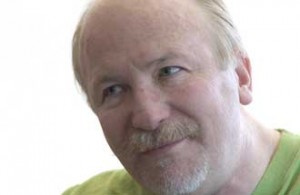
As a bluesman and educator, prolific author led the way in critical pedagogy
By John Willinsky
Joe L. Kincheloe, a prolific scholar, tireless teacher and mentor, irrepressible musician, and leading figure in the critical pedagogy movement, died on Dec. 19, 2008, after suffering a heart attack while on vacation in Jamaica.
Joe, as he preferred to be addressed, was the Canada Research Chair in Critical Pedagogy in the Department of Integrated Studies in Education at McGill. During his time at McGill, he and Shirley Steinberg founded the Paulo and Nita Freire International Project for Critical Pedagogy (http://freire.mcgill.ca/), which has established itself as a leading archival and co-ordinating centre for a global research initiative that works with teachers and students to improve the contribution that education makes to social justice and the democratic quality of people’s lives.
Joe played a formative role in the development of critical pedagogy, which is a fusion of Critical Theory, arising out of the Frankfurt School, Antonio Gramsci and others, and the radical democratic pedagogy of the Brazilian educator Paulo Freire. Over the course of 50 books, including Teachers as Researchers and Kinderculture, and countless articles, Joe systematically uncovered the ways in which institutional influences in the construction and representation of knowledge, identity and culture were badly serving certain populations. By developing a politically sensitive approach to the cognitive sciences, he was able to adeptly demonstrate how a number of the leading ideas currently at play within education, such as standards and intelligence, were being used unconsciously or knowingly to undermine basic democratic principles in ways that, he made clear, the schools could both study and address.
Such work was necessary in order, as Joe wrote at one point, “to build an ethical sense on which [people] can build humane and evolving institutions.” He drew on a vast range of figures and traditions, in a richly eclectic research methodology that he identified as bricolage, which was rooted in a self-reflective and self-critical grasp of “the relationship between a researcher’s ways of seeing and the social location of his or her personal history.” It was the rigour of critical vigilance that he brought to his writing, as well as to his teaching and his collaboration with educators in the schools.
Joe was born in what he described as “the mountains of East Tennessee… in a very poor area of Sullivan County.” Growing up among “grotesque forms of classism and racism in the South of the 1950s and 1960s,” he soon found a means, while still in high school, to bring people together and move them as a blues musician and songwriter. His song lyrics were to grow sharply satirical and political over the years – Tom Lehrer meets Phil Ochs and Greg Allman – finding their raspy soulful expression, most recently, with Tony and the Hegemones, which has been playing the North American educational conference circuit since 1998. It was in Tennessee that he also had his start as a teacher, sharing with middle-school students the quirky counterculture stories of Richard Brautigan and Tom Robbins, and with fellow teachers workshops on themes such as teaching “third-world” geography.
Prior to coming to McGill in 2006, Joe had held positions at CUNY, including the Belle Zeller Chair of Public Policy and Administration, Pennsylvania State University, Florida International University, Louisiana State University at Shreveport, and, perhaps most influentially, an initial posting as Education Department Chair at Sinte Gleska College in the Rosebud Sioux Community of South Dakota. For all of the prodigious scale and scope of his own published work across each of these institutions, his exemplary generosity as a scholar will long be remembered for the publishing guidance and opportunities that he provided for well over 600 books of colleagues through the many valuable books series that he edited, principally with Shirley Steinberg, his partner in love, work, and family.
For Joe was also father and grandfather, to be dearly missed by his children Ian Steinberg and Christine Quail, and their children Luna and Hava; Chaim Steinberg and Marissa Fogel, and their child, Tobias; Meghann and Ryan Clements, and their children Maci, Cohen, and Seth; and Bronwyn Steinberg.
Yet what also needs to be said is that there was no occasion to which Joe Kincheloe could not add warmth and levity, no conversation he could not indelibly enrich with a pointed story from his youth or the endless misadventures of his adulthood. “Stop me if you’ve heard me tell this…” would often be his opener. (One would as soon want to stop Bob Dylan on launching into “Just Like Tom Thumb Blues.”) And yet he was as quick to laugh at another’s story; as interested to take note of others’ struggles; as soon to be overly polite to the rude and surly; and as certain to be patient with the inevitable frustrations of getting from A to B in today’s world. When you heard him gently say at the close of a meeting or phone call, “Peace be with you,” you knew that the peace that went with you was every bit Joe’s gift to you. Then and always.
John Willinsky is a professor at Stanford University, School of Education and director of the Public Knowledge Project.
